(CPV) - The forum is an opportunity for specialized management agencies from central to local levels; experts, scientists ; and representatives of communities affected by natural disasters to look at and draw valuable lessons in disaster prevention and control. From there, propose plans, solutions, and perspectives to build a safe social community against natural disasters.
On December 23, in Yen Bai , the Department of Dyke Management and Disaster Prevention and Control, Ministry of Agriculture and Rural Development; the Department of Agriculture and Rural Development (DARD) of Yen Bai province and related units coordinated with the Vietnam Agriculture Newspaper to organize the Forum "Experience in post-disaster recovery".
The Department of Dyke Management and Natural Disaster Prevention and Control, Ministry of Agriculture and Rural Development, said that storm No. 3 (storm Yagi) and the rain circulation after the storm were the most serious and fierce natural disasters in many years in the North; occurring almost simultaneously with especially dangerous types of natural disasters (very strong storms, especially large floods, flash floods, landslides, widespread flooding, etc.); severely impacting and affecting most socio-economic activities and infrastructure institutions from the sea to the delta, midlands and mountains.
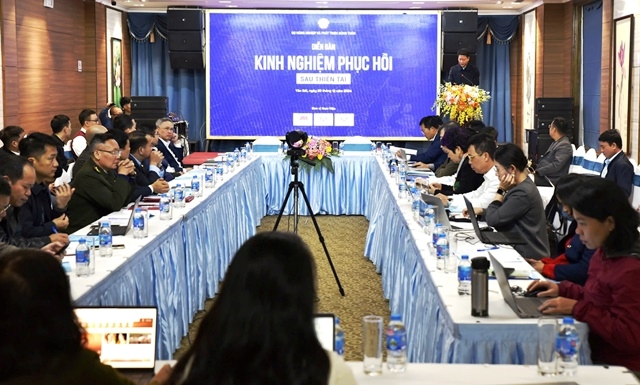 |
| Photos at the Forum (Photo: PV) |
The forum is an opportunity for specialized management agencies from central to local levels; experts, scientists; representatives of communities affected by natural disasters to look at and draw valuable lessons in disaster prevention and control. From there, propose plans, solutions, and perspectives to build safer social communities against natural disasters.
According to Mr. Nguyen The Phuoc, Standing Vice Chairman of Yen Bai Provincial People's Committee, after Typhoon Yagi, the total estimated damage in Yen Bao reached nearly 6,000 billion VND. Therefore, this Forum is an important opportunity for people, cooperatives, businesses, and management agencies to sit together and find a way forward.
Mr. Phuoc said that overcoming the consequences is considered a key task. In particular, restoring agricultural production is the top priority. Accordingly, during natural disasters, despite prior preparation, when a big storm occurs, rescue work still requires mobilizing a lot of resources. Therefore, preparing rescue forces, vehicles, materials and funding will help the province quickly respond and overcome the consequences after natural disasters.
The Standing Vice Chairman of the Yen Bai Provincial People's Committee requested farmers, cooperatives, businesses and provincial government units to join hands to continue restoring production. Through the Forum, Mr. Phuoc also hopes to receive initiatives and participation from investors to continue helping farmers restore production after the storm.
Sharing at the Forum, Mr. Le Trong Dam, Deputy Editor-in-Chief of Vietnam Agriculture Newspaper, said that although always raising the spirit of vigilance and building plans and response scenarios according to the motto "Acting early to proactively prevent and combat natural disasters", rare strong storms such as storm No. 3 (Yagi) occurring in August and September 2024, accompanied by circulation causing heavy rain over a large area, have created historic floods in river basins in the North.
“Natural disasters are the biggest test to verify the capacity of the disaster prevention and control system. Through Typhoon Yagi, the entire Party, the entire people and the entire army joined hands and united to overcome the most difficult moments, trying their best to ensure that people in areas affected by natural disasters do not suffer from hunger or thirst; the vulnerable and those in dangerous areas are supported to evacuate to safe places; the operation of large reservoirs in the upper reaches of river basins ensures safety, minimizing impacts on downstream areas. The call for domestic and international resources for emergency disaster response has also been widely and quickly deployed. This is a huge resource to support localities and people to rebuild, restore production and stabilize their lives. After more than 3 months since Typhoon Yagi made landfall, signs of revival have appeared in villages and devastated areas,” Mr. Le Trong Dam emphasized.
Reporting at the Forum, Mr. Nguyen Van Vuong, Head of the Food Crops Department, Department of Crop Production, stated that according to the summary report of the Northern provinces, the rice area was flooded, affecting about 285 thousand hectares, the flower area was flooded, affecting about 61 thousand hectares and the fruit tree and industrial tree area was affected about 115 thousand hectares. Therefore, in order to quickly restore production for the people, the Department has proactively closely monitored the crop schedule and actual weather developments, thereby adjusting the crop structure accordingly. Specifically, focusing on developing cold-loving winter crops, with the ability to preserve for a long time and have a stable consumption market. In addition to being flexible in land preparation and planting methods, we especially focus on applying technical advances to cultivation, helping to reduce input costs, saving time and labor. The work of preventing and controlling pests in winter crops and controlling agricultural material sources has also been vigorously implemented. In the coming time, the Department of Crop Production will continue to closely monitor the weather situation and establish working groups to go to localities to inspect and provide timely support, helping people stabilize production and achieve the highest efficiency.
 |
| Delegates chairing the Forum (Photo: PV) |
Proposing solutions for aquatic products, Mr. Le Quang Hung, Specialist of the Aquaculture Department, Department of Fisheries, affirmed that some aquaculture farmers in the North are advised to choose farming species suitable for the climate and terrain. Enterprises are recommended to have specific support measures such as reducing the price of seeds, feed, etc. For long-term solutions, representatives of the Department of Fisheries proposed the following solutions: Statistics of damage in aquaculture, timely support for people according to regulations. Work with banks and credit institutions to postpone and extend debts and add new loan packages to restore production for people. Mobilize resources, invest in infrastructure in aquaculture areas, meet aquaculture conditions and prevent natural disasters, organize environmental sanitation in flooded farming areas after natural disasters. Review and forecast the demand for aquatic seeds, feed, and environmental treatment chemicals for aquaculture to soon restore production. Connect with suppliers to support farmers with materials for production. Review potential farming areas for investment and development of aquaculture to ensure the industry's growth plan, increase resilience to natural disasters, and adapt to climate change. The Department of Fisheries also proposed that the Government have a debt relief policy for people and businesses in the aquaculture sector, directly and indirectly affected by Typhoon Yagi.
Analyzing the solutions to help proactively and effectively prevent and combat natural disasters, Mr. Nguyen Van Tien, Deputy Director of the Department of Dyke Management and Natural Disaster Prevention and Control, shared that the more accurate the forecasts, the more effective the prevention and combat organization will be. Therefore, in addition to data from domestic agencies, the Department consults forecasts from other countries. In addition, increase the broadcasting time on mass media in many easy-to-remember and easy-to-access forms so that the majority of people can easily receive and proactively respond.
Meanwhile, according to Mr. Tran Trong Tung, Deputy Head of the Department of Science, Technology, Environment and International Cooperation, Department of Livestock Production, financial support packages or preferential loans should be provided to affected livestock households to quickly overcome the damage. Support in kind such as feed, breeding animals, equipment to repair damaged livestock infrastructure. In addition, interest rates should be waived or debt rescheduling should be extended for livestock households and businesses that are borrowing from banks, creating conditions for production recovery. Budget investment should be made to support the reconstruction of barns, processing facilities and technical infrastructure in damaged areas. Rural transport, electricity and water systems should be restored and improved to ensure production conditions. At the same time, additional resources should be provided for vaccination, control and prevention of disease outbreaks in post-storm conditions, when the environment is easily polluted, and diseases can spread rapidly. In particular, it is recommended to provide short-term training programs for farmers on reproduction techniques, post-disaster risk management and productivity improvement in difficult conditions. At the same time, it is necessary to send agricultural experts to directly support local areas to restore livestock and poultry herds and optimize the food supply chain. In addition, it is recommended to propose policies to support trade promotion and consumption of livestock products, especially in heavily affected areas to avoid oversupply and sharp price drops. Notably, it is necessary to develop and expand agricultural insurance programs to help livestock households reduce the financial burden when facing natural disaster risks.
Answering reporters' questions at the Forum, Mr. Nguyen Xuan Sang, Deputy Director of the Department of Agriculture and Rural Development of Yen Bai province, emphasized the spirit of self-reliance of the people in overcoming the consequences of storms and floods. According to Mr. Sang, Yen Bai is a locality with severe post-storm circulation, leading to heavy rain and landslides, causing damage to 27,000 houses, 3,000 locations at risk of landslides and directly affecting more than 5,000 households. After the storm, the province arranged to stabilize the lives of people directly affected, prioritizing interlaced and on-site forms. At landslide sites, in relatively safe areas, the province recommended that people reinforce the roof. For households that cannot be arranged on-site, the province proposed to build 12 resettlement houses, to accommodate nearly 800 households, with a budget of over 300 billion VND, expected to be implemented in 2025.
On this occasion, Mr. La Tuan Hung, Vice Chairman of the People's Committee of Yen Binh district (Yen Bai) expressed his hope that the central agencies and Yen Bai province will soon develop and deploy a map for natural disaster prevention and control, and provide timely warnings so that people can proactively respond. In addition, it is necessary to urgently rearrange the traffic system to ensure the delivery of machinery and rescue vehicles to areas at risk of landslides and add warning signs in dangerous areas. In particular, when the Thac Ba 2 Hydropower Plant comes into operation, it is necessary to have a reasonable flood regulation process and an early forecasting system to avoid the situation of releasing floodwaters with too large a flow, causing flooding and damage to people in the area.
Ms. Nguyen Thi Thuy Ai, Head of Information and Communications Department, Department of Dyke Management and Natural Disaster Prevention and Control, shared: The International Day for Disaster Risk Reduction and ASEAN Day for Disaster Management in 2024 has the theme "Empowering the young generation for a future safe from natural disasters". This is an issue that is considered extremely urgent in the current context. Equipping the young generation with the necessary skills to protect themselves when natural disasters occur will ensure the future of the Earth. "The good news is that in Vietnam in recent years, this activity has been promoted; the young generation is fully equipped with skills related to this issue" - Ms. Ai said./.
Source: https://dangcongsan.vn/xa-hoi/dien-dan-kinh-nghiem-phuc-hoi-sau-thien-tai-687265.html







![[Photo] The 5th Patriotic Emulation Congress of the Central Inspection Commission](https://vphoto.vietnam.vn/thumb/1200x675/vietnam/resource/IMAGE/2025/10/27/1761566862838_ndo_br_1-1858-jpg.webp)





















![[Photo] National Assembly Chairman Tran Thanh Man receives Chairman of the House of Representatives of Uzbekistan Nuriddin Ismoilov](https://vphoto.vietnam.vn/thumb/1200x675/vietnam/resource/IMAGE/2025/10/27/1761542647910_bnd-2610-jpg.webp)
![[Photo] Party Committees of Central Party agencies summarize the implementation of Resolution No. 18-NQ/TW and the direction of the Party Congress](https://vphoto.vietnam.vn/thumb/1200x675/vietnam/resource/IMAGE/2025/10/27/1761545645968_ndo_br_1-jpg.webp)


























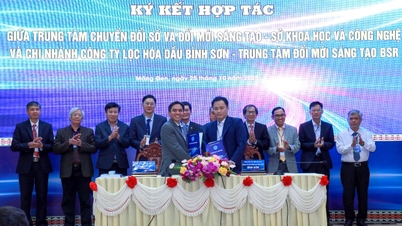
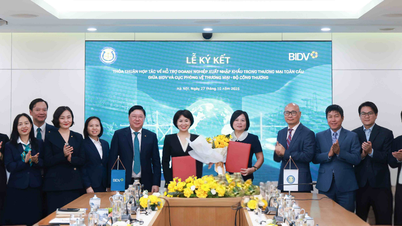








![[Photo] Prime Minister attends the 28th ASEAN-China Summit](https://vphoto.vietnam.vn/thumb/402x226/vietnam/resource/IMAGE/2025/10/28/1761624895025_image-2.jpeg)






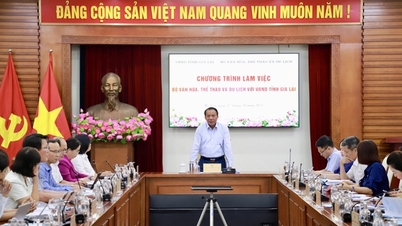



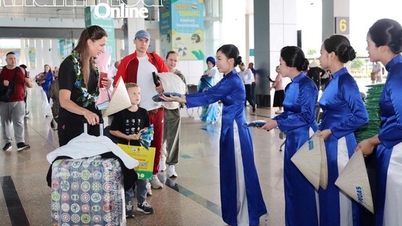
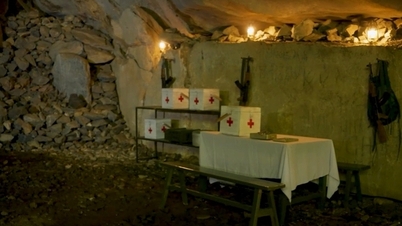






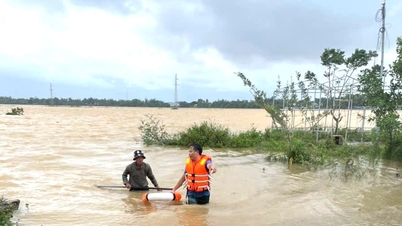

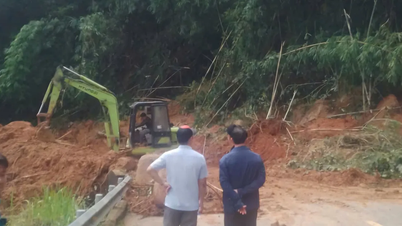





















Comment (0)